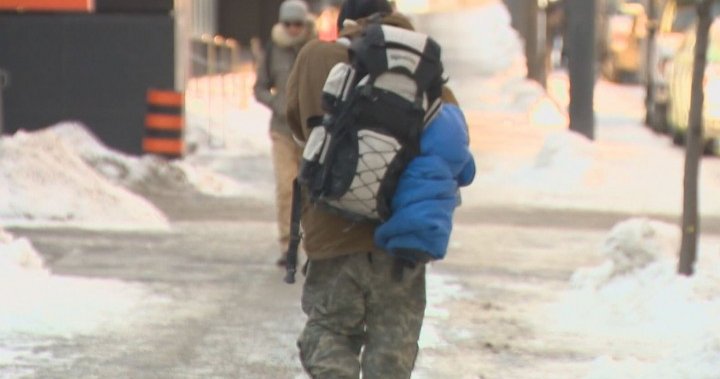The untimely demise of a 55-year-old unhoused man in Montreal’s Hochelaga-Maisonneuve borough has sparked a renewed debate about the adequacy of resources and support systems for vulnerable populations during harsh winter conditions. Discovered unresponsive in a public square early Sunday morning, the man was transported to a hospital where he was pronounced dead. Authorities suspect hypothermia as the likely cause, highlighting the perilous reality faced by individuals experiencing homelessness in the face of frigid temperatures.
The tragic incident has prompted borough Mayor Pierre Lessard-Blais to decry the lack of a comprehensive provincial strategy to address homelessness. Lessard-Blais characterized the man’s death as “an avoidable and sadly predictable tragedy,” underscoring the urgent need for increased investments in emergency shelters and warming centers. He directly challenged assertions by the premier that the worst of the homeless crisis had passed, arguing that without significant intervention, more lives will be lost as winter progresses. The mayor’s stark warning underscores the precarious situation faced by those living on the streets, particularly during the coldest months of the year.
The death of the unhoused man serves as a stark reminder of the systemic challenges that contribute to homelessness and the heightened vulnerability of this population group. While immediate interventions such as emergency shelters and warming centers offer temporary respite, long-term solutions must address the root causes of homelessness, including poverty, mental health issues, addiction, and lack of affordable housing. The current system often fails to provide adequate support for individuals struggling with these complex challenges, leaving them with limited options and increased exposure to life-threatening risks.
The mayor’s call for a province-wide plan reflects a growing consensus that a piecemeal approach is insufficient to tackle the multi-faceted issue of homelessness. Such a plan would require a coordinated effort from various levels of government, community organizations, and social service providers. Key elements would include increased funding for affordable housing initiatives, expanded access to mental health and addiction treatment services, and enhanced support programs to assist individuals in transitioning out of homelessness. A comprehensive strategy must also prioritize prevention measures to address the social determinants of health that contribute to homelessness in the first place.
The tragic incident in Montreal underscores the urgent need for a paradigm shift in how society addresses homelessness. Moving beyond mere crisis intervention requires a fundamental change in perspective, recognizing the inherent dignity and worth of every individual, regardless of their housing status. This involves moving away from stigmatizing and criminalizing homelessness towards a more compassionate and human rights-based approach. Such an approach emphasizes the right to adequate housing and prioritizes investments in preventative measures, support services, and community-based solutions that empower individuals to rebuild their lives.
The death of the 55-year-old man is a poignant reminder of the human cost of inaction. As temperatures continue to drop, the urgency to implement effective solutions grows. The call for a province-wide plan represents a crucial step towards ensuring that no more lives are lost due to preventable tragedies. It is imperative that governments, communities, and individuals work together to create a society where everyone has access to safe, affordable housing and the support they need to thrive. The memory of this man should serve as a catalyst for meaningful change, prompting a renewed commitment to addressing the root causes of homelessness and ending the cycle of vulnerability and despair that claims far too many lives.

